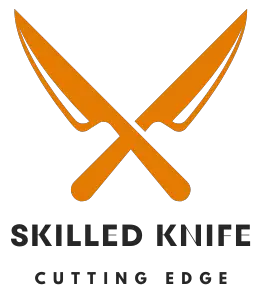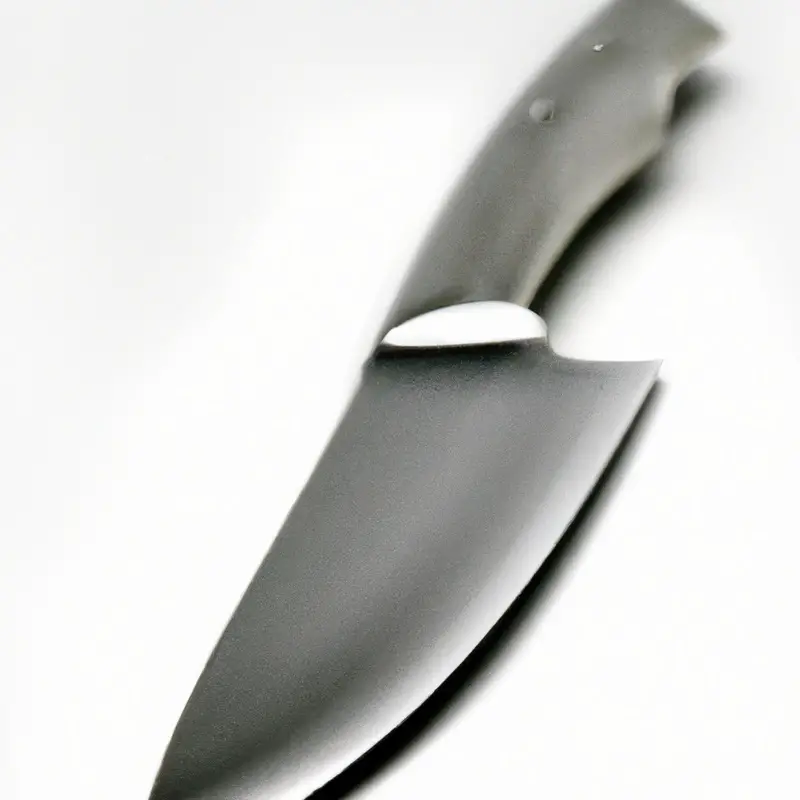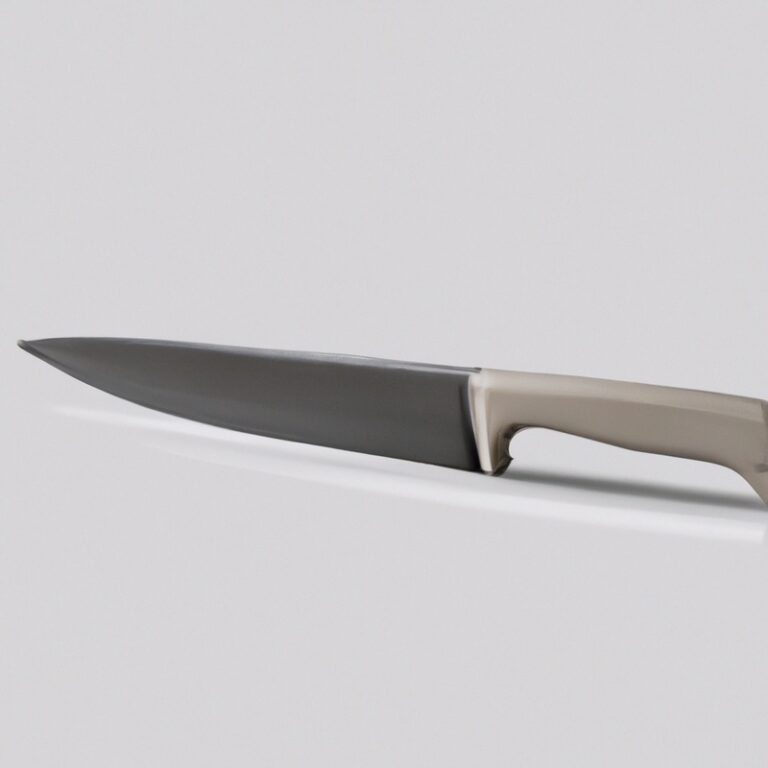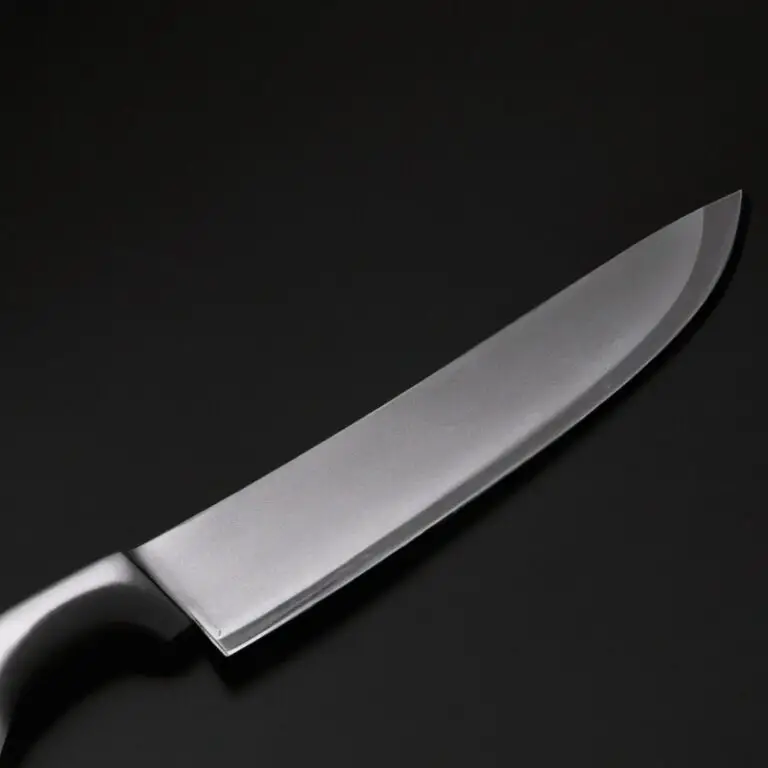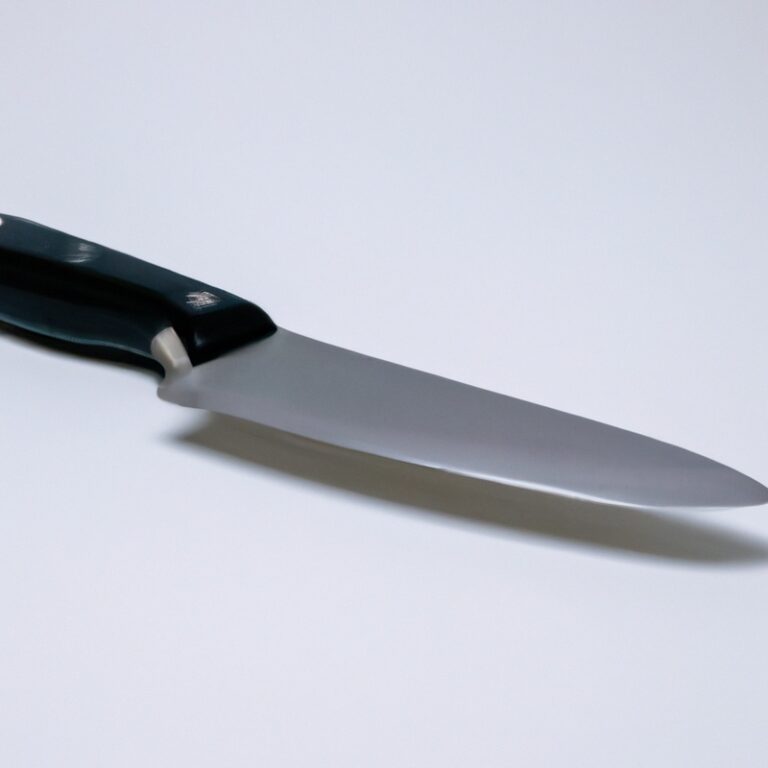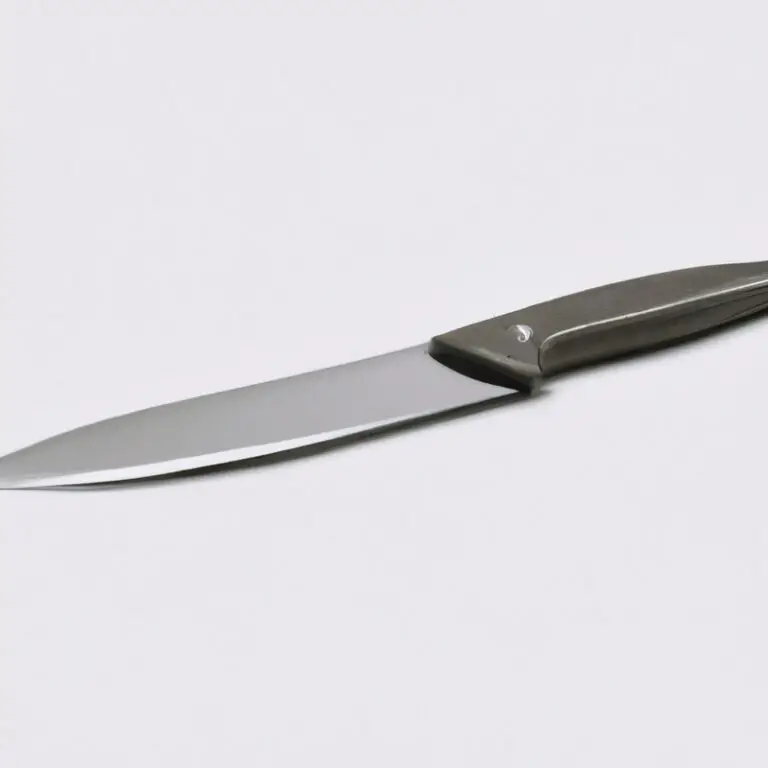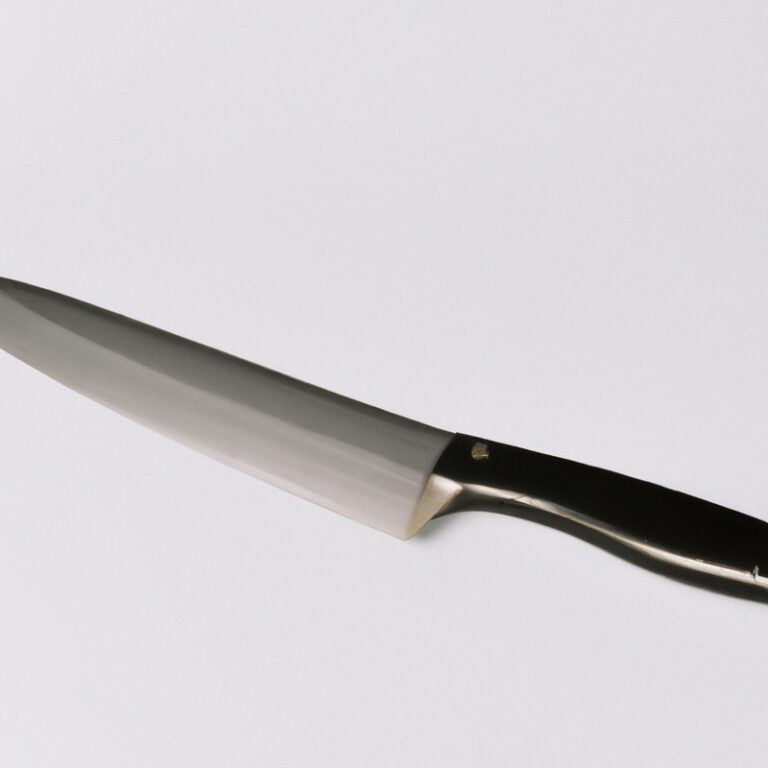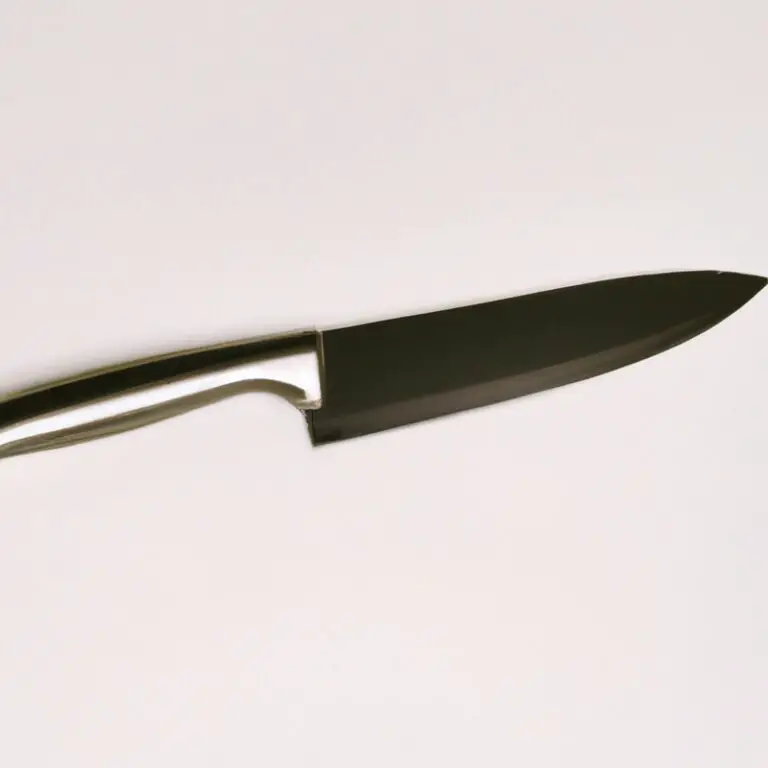Which Knife Steel Is Best For Oyster Knives?
Key Takeaways:
- Stainless steel with high corrosion resistance is ideal for oyster knives.
- Carbon steel provides excellent sharpness but requires more maintenance for oyster knives.
- Oyster knives made with high-quality steel alloys offer superior durability and longevity.
- Opt for a knife with a thin and flexible blade for precision while shucking oysters.
Do you consider shucking oysters an art form?
Well, if you do, then you understand the importance of having the right tool for the job.
That’s where the humble oyster knife comes in.
But with so many knife steel options to choose from, how do you know which one is best for cracking open those delicious mollusks?
In this article, we’ll dive into the popular choices for oyster knife steel – stainless steel, high carbon steel, and Damascus steel – and compare their sharpness, corrosion resistance, durability, and toughness.
By the end, you’ll have a clear winner to add to your culinary arsenal.
So, let’s get shucking!
Popular Knife Steel Options for Oyster Knives
Stainless Steel
Stainless steel is a popular choice for oyster knives due to its excellent corrosion resistance.
It is made from a combination of iron and other elements such as chromium, which helps to prevent rust and maintain a clean appearance.
Stainless steel knives are also relatively easy to clean and maintain.
However, they may not hold an edge as well as other types of steel and may require more frequent sharpening.
Overall, stainless steel is a reliable option for oyster knives, offering durability and resistance to corrosion.
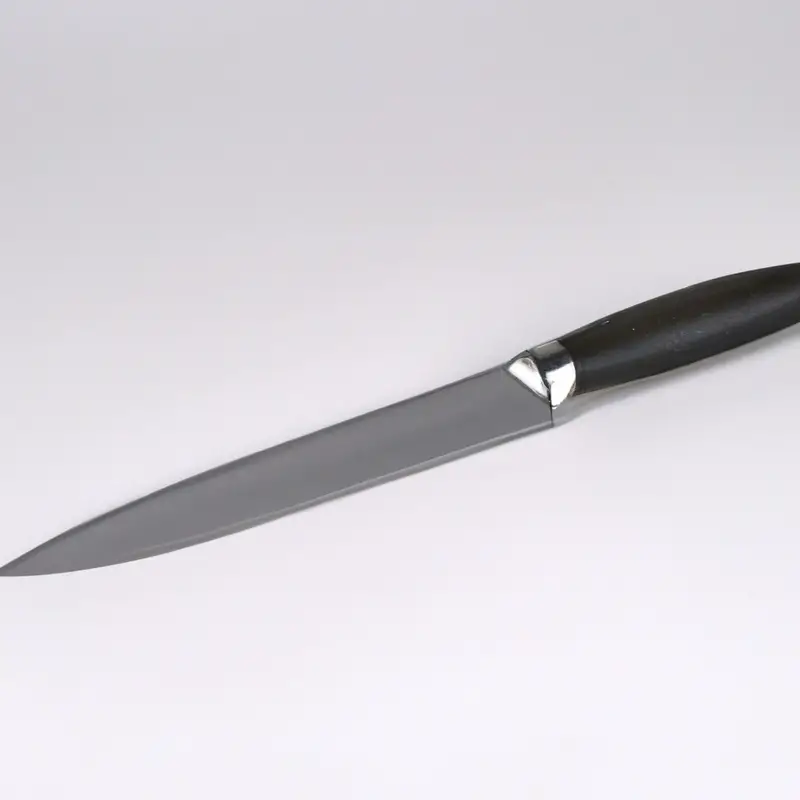
High Carbon Steel
High carbon steel is a popular choice for oyster knives due to its excellent sharpness and durability.
This type of steel is known for its high carbon content, which allows it to maintain a sharp edge for a longer period.
It is also quite tough, making it resistant to chips and breaks.
However, high carbon steel is more prone to corrosion, so proper care and maintenance are essential.
Regular cleaning, drying, and oiling will help prevent rusting.
Overall, high carbon steel is a reliable option for oyster knives if properly cared for.
Damascus Steel
Damascus steel is a popular option for oyster knives because of its unique properties. It is known for its beautiful patterns and excellent strength.
The steel is made by layering different types of steel together, resulting in a strong and durable blade.
Additionally, Damascus steel has good corrosion resistance, which is important when working with oysters. It can be a bit more expensive than other options, but the quality and craftsmanship make it a worthwhile investment for oyster enthusiasts.
Comparing Knife Steel Options for Oyster Knives
Sharpness and Ease of Sharpening
Sharpness and ease of sharpening are two important factors to consider when choosing a knife steel for oyster knives. Some knife steels, like high carbon steel, can achieve exceptional sharpness, allowing for precise and effortless cuts when opening oysters.
However, high carbon steel may require more frequent sharpening compared to stainless steel.
Stainless steel, on the other hand, offers good sharpness and is easier to sharpen and maintain. It is important to find a balance between sharpness and ease of sharpening based on your personal needs and preferences.
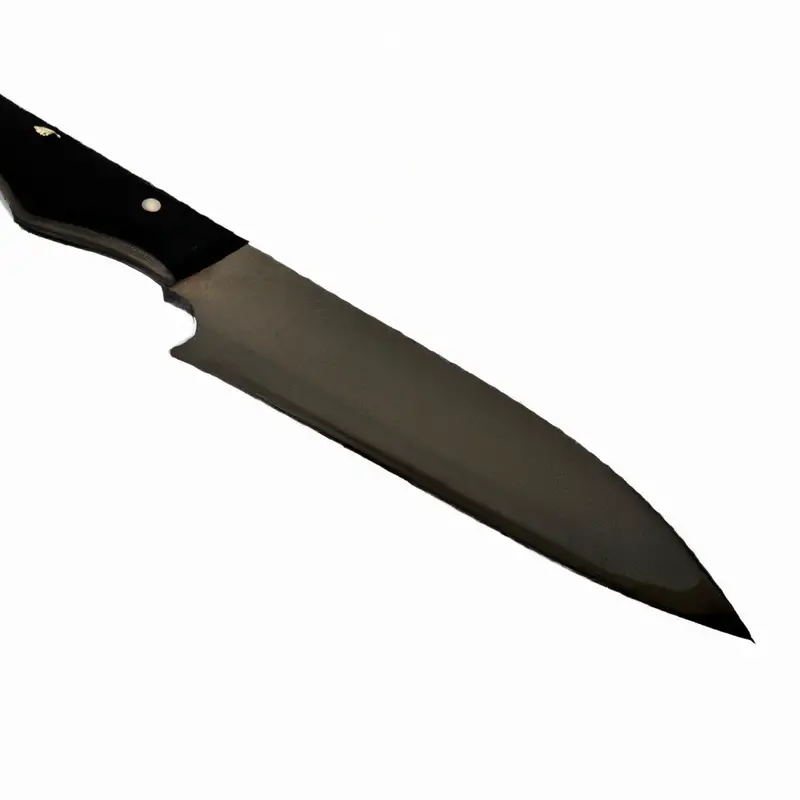
Corrosion Resistance
Corrosion resistance is a key factor to consider when choosing a knife steel for oyster knives. It ensures that the steel stays protected from rust and deterioration, even when exposed to the salty and acidic environments often encountered when shucking oysters.
Stainless steel is an excellent option for corrosion resistance due to its high chromium content, which forms a protective layer on the knife.
Some high carbon steels also offer good corrosion resistance when properly maintained. Proper cleaning, drying, and occasional oiling can further enhance the corrosion resistance of your oyster knife.
Durability and Toughness
Durability and toughness are essential qualities to consider when choosing a knife steel for oyster knives.
You want a steel that can withstand the repeated shucking motion without losing its edge or breaking.
High carbon steel is known for its exceptional toughness and durability, making it a popular choice for oyster knives.
Stainless steel is also a good option, as it is resistant to rust and corrosion, which can affect the durability of the knife.
Damascus steel, with its unique layered pattern, offers a combination of toughness and aesthetics.
Ultimately, the best choice depends on your personal preferences and budget.
Best Knife Steel for Oyster Knives
Stainless Steel: Pros and Cons
Stainless steel has both pros and cons when it comes to oyster knives.
On the positive side, stainless steel is highly resistant to corrosion, making it ideal for use around saltwater.
It is also easy to maintain and clean, requiring minimal effort to keep it looking good.
Additionally, stainless steel is known for its durability and toughness.
However, stainless steel may not hold its edge as well as other knife steels, meaning it may require more frequent sharpening.
It can also be a bit harder to sharpen due to its high hardness.
Furthermore, some people prefer the feel and weight of other steel types.
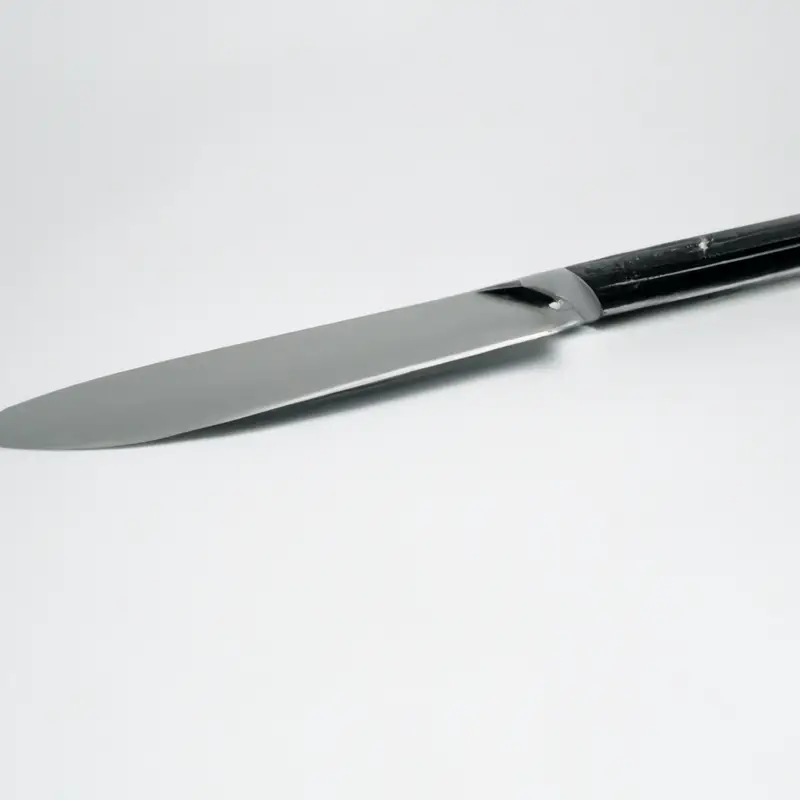
High Carbon Steel: Pros and Cons
High Carbon Steel: Pros and Cons Here are the pros and cons of using high carbon steel for oyster knives: Pros:
- Excellent edge retention: High carbon steel blades have the ability to hold a sharp edge for a long time, making them ideal for cutting through oyster shells.
- Easy to sharpen: This type of steel is known for its ease of sharpening, allowing you to maintain a razor-sharp edge with minimal effort.
- Enhanced cutting performance: High carbon steel offers superior cutting performance, allowing you to effortlessly open oysters with precision.
Cons:
- Susceptible to corrosion: High carbon steel is not as resistant to corrosion as stainless steel, so it requires regular cleaning and immediate drying to prevent rusting.
- Maintenance: It needs to be regularly oiled and cared for to prevent rust and maintain its performance.
- More prone to chipping: Due to its hardness, high carbon steel can be more prone to chipping if not used and maintained properly.
While high carbon steel offers many advantages in terms of sharpness and cutting performance, it requires proper care and maintenance to prevent corrosion and prolong its lifespan.
Damascus Steel: Pros and Cons
Damascus steel, renowned for its distinctive wavy pattern, has both pros and cons. One major advantage of Damascus steel is its exceptional strength and durability, making it perfect for oyster knives that require resilience.
Additionally, Damascus steel blades tend to hold their edge for longer periods, reducing the need for frequent sharpening.
However, this type of steel can be more expensive compared to other options. It can also be prone to corrosion if not properly cared for, requiring regular maintenance.
Despite these drawbacks, many knife enthusiasts appreciate Damascus steel for its unique aesthetics and impressive performance.
Recommendation for the best knife steel for oyster knives
For the best knife steel in oyster knives, I strongly recommend stainless steel.
It offers excellent corrosion resistance, which is crucial when working with seafood.
Stainless steel is also easy to clean and maintain.
Another good option is high carbon steel, known for its sharpness and durability.
However, it requires more maintenance to prevent rust.
Damascus steel, while beautiful, may not be the best choice for oyster knives as it is more prone to corrosion.
Ultimately, it depends on your personal preferences and the level of maintenance you’re willing to commit to.
Proper Maintenance and Care for Oyster Knives
Cleaning and Drying
Cleaning and drying your oyster knife is essential for maintaining its performance and prolonging its lifespan.
After each use, wash the knife with warm water and mild dish soap.
Use a soft sponge or cloth to scrub away any debris or residue.
Rinse thoroughly and make sure to remove any soap.
To dry, pat the knife dry with a clean towel and let it air dry completely before storing.
Avoid using abrasive cleaners or leaving the knife wet, as it can cause corrosion.
Proper cleaning and drying will ensure that your oyster knife stays in great condition for years to come.
Final Verdict
When it comes to selecting the best knife steel for oyster knives, it ultimately depends on your personal preferences and needs. Stainless steel is a popular choice due to its corrosion resistance, easy maintenance, and affordability.
High carbon steel offers excellent sharpness and edge retention, making it ideal for precision cutting.
Damascus steel, though expensive, provides a beautiful and durable option. To make an informed decision, consider factors such as sharpness, corrosion resistance, and durability.
Remember to properly maintain and care for your oyster knives to ensure their longevity.
Ultimately, the best knife steel for oyster knives is the one that meets your specific requirements.
